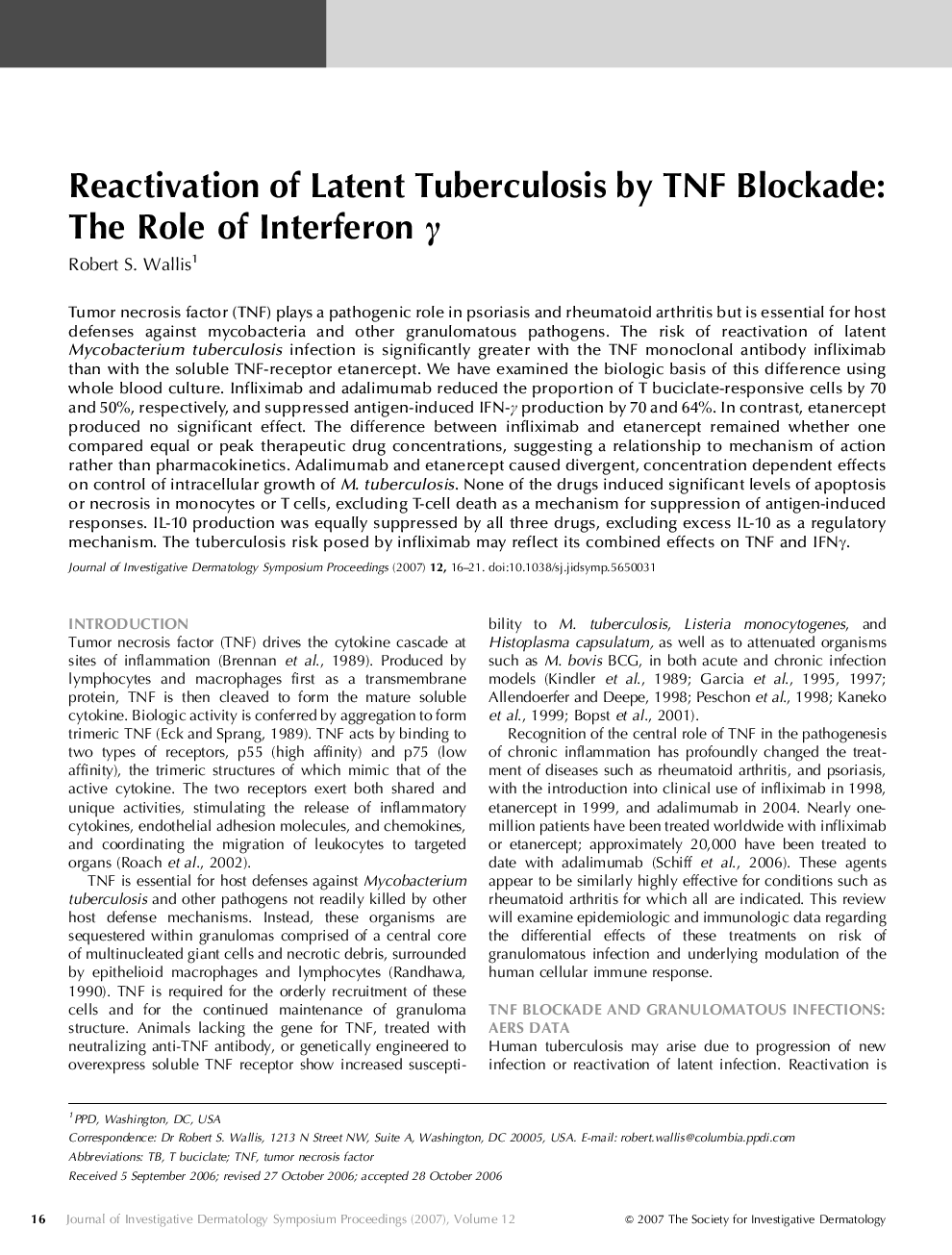| Article ID | Journal | Published Year | Pages | File Type |
|---|---|---|---|---|
| 3218992 | Journal of Investigative Dermatology Symposium Proceedings | 2007 | 6 Pages |
Tumor necrosis factor (TNF) plays a pathogenic role in psoriasis and rheumatoid arthritis but is essential for host defenses against mycobacteria and other granulomatous pathogens. The risk of reactivation of latent Mycobacterium tuberculosis infection is significantly greater with the TNF monoclonal antibody infliximab than with the soluble TNF-receptor etanercept. We have examined the biologic basis of this difference using whole blood culture. Infliximab and adalimumab reduced the proportion of T buciclate-responsive cells by 70 and 50%, respectively, and suppressed antigen-induced IFN-γ production by 70 and 64%. In contrast, etanercept produced no significant effect. The difference between infliximab and etanercept remained whether one compared equal or peak therapeutic drug concentrations, suggesting a relationship to mechanism of action rather than pharmacokinetics. Adalimumab and etanercept caused divergent, concentration dependent effects on control of intracellular growth of M. tuberculosis. None of the drugs induced significant levels of apoptosis or necrosis in monocytes or T cells, excluding T-cell death as a mechanism for suppression of antigen-induced responses. IL-10 production was equally suppressed by all three drugs, excluding excess IL-10 as a regulatory mechanism. The tuberculosis risk posed by infliximab may reflect its combined effects on TNF and IFNγ.
